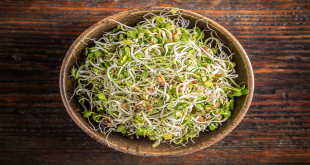Addiction is often seen as a self-gratifying behaviour that stems from character weakness, and the addiction continues because the individual does not have enough willpower to stop. In the medical research community, however, this notion of what fuels addiction is no longer as prevalent.
Leading scientists and clinicians agree that many addictive tendencies are the result of attempting to relieve discomfort caused by emotional and physical pain. Psychoactive substances are used by people who want to feel better, and addiction to such substances is caused primarily by efforts to self-medicate.
People reference addiction every day and lightly call themselves names such as “workaholics” or “chocoholics”. Clinicians, however, take the term addiction very seriously. With the most recent publication of the Diagnostic and Statistical Manual of Mental Disorders, 5th Edition (DSM-5), addiction is included in the American Psychiatric Association’s diagnostic manual for the first time.
The term addiction now refers to a category that includes substance use disorders, such as illicit drug use, and non-substance use disorders, such as compulsive gambling disorder.
A new take on addiction
Perhaps it seems odd to categorise gambling and illicit drug use under the same classification of addiction, but scientists are moving away from the idea that multiple addictions exist, one for every addictive behaviour. On the other hand, the Syndrome Model of Addiction reports that there is one addiction that is expressed in multiple ways. An expression of addiction can be nearly any activity, whether or not a substance is involved. The main factor for the classification of addiction is that the expression is done with the intention to make the person feel better.
Advances in scientific research have influenced our current understanding of the vexing problem of addiction. Brain-imaging scans and related technology, for example, have shown us that the brain responds in a similar fashion when experiencing pleasure, regardless of the source. That suggests that psychoactive substances and pleasure-seeking behaviours produce a similar brain response. In this way, genetic studies indicate that certain people are at a greater risk for addiction, but not to a particular expression of addiction.
This research shows that the expression of addiction, a substance or activity, is not as important as once thought. Instead, the new take suggests that addiction can be functional, but it destroys as it functions. Addiction forms a relationship between an individual and an expression of addiction. As the addiction grows, the expression becomes more important and the importance of other activities is reduced. In the end, addiction creates a complicated struggle to know when to resist and when to act on impulses. The key is to recognise when addiction causes health problems, family issues, work difficulties, and other functional impairments.
There are many treatment options available, but many require time and patience.
Addiction lasts throughout a person’s lifetime and those seeking treatment often relapse once or twice because of other emotional issues. Nonetheless, it is possible to recover from addiction and many can accomplish this by themselves. If it is difficult to do on their own, many find additional support from their support system or medical provider. It typically takes a few tries before a person can recover from addiction, which can cause a person to feel helpless and frustrated.
No matter the path to recovery, it is essential to remember that stopping addiction takes time and requires several attempts. Every time a person tries to recover from addiction, there is another opportunity to learn and redirect efforts to become successful. Consider recovery as a five-year plan that will be filled with good and bad moments alike. Though there will be down times, life can be very different in 5 years when the addiction has subsided.
 Pagalmusiq.com Popular News Update Website | Pagalmusiq.com
Pagalmusiq.com Popular News Update Website | Pagalmusiq.com




